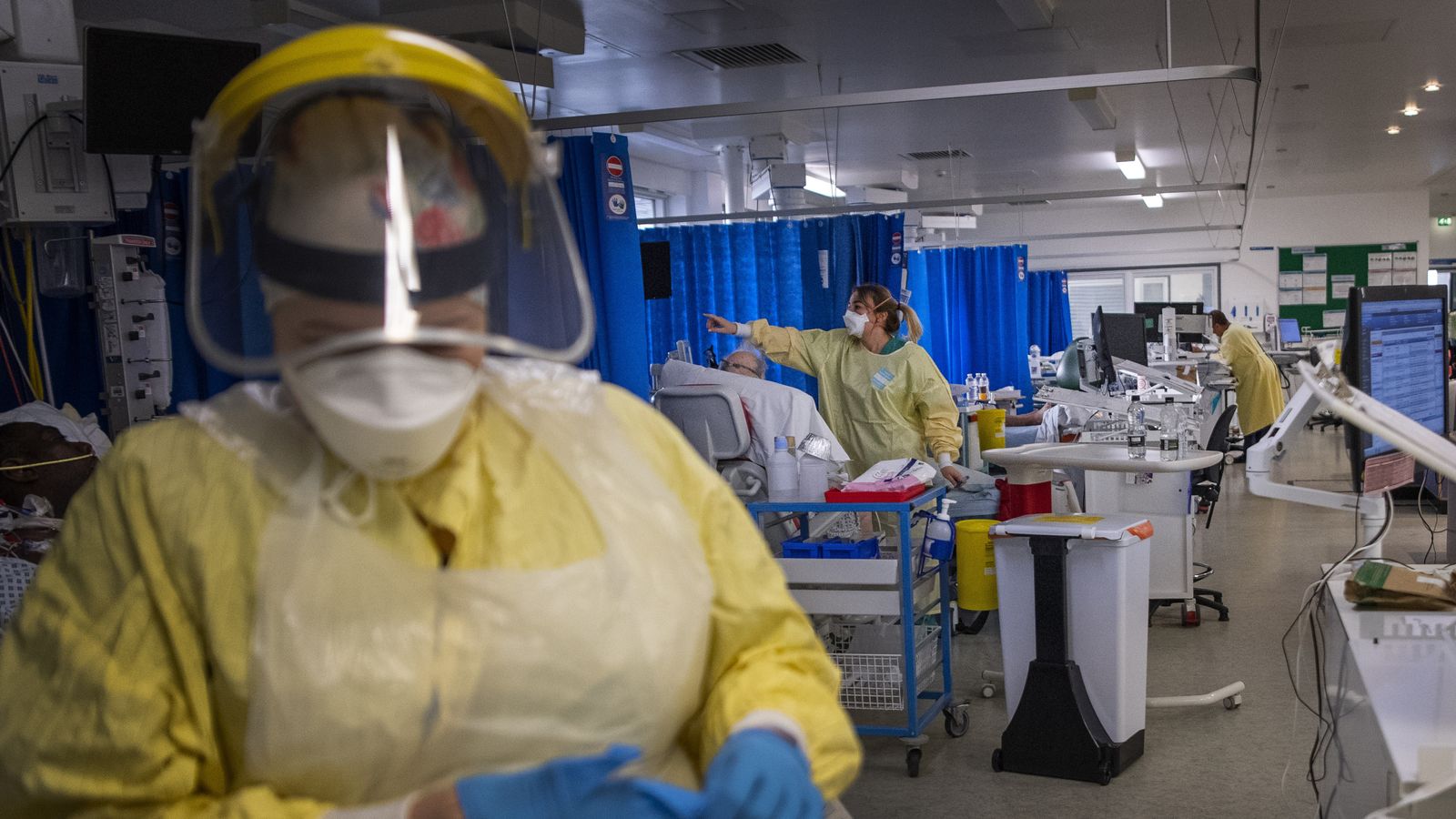NHS chief says service faces ‘enormous challenges’ as experts warn it ‘may not reach 100th anniversary’

The National Health Service faces a future of “enormous challenges”, its chief executive has warned on its 75th birthday.
In a speech to mark the anniversary of its creation, Amanda Pritchard, the head of the NHS in England, described the publicly-funded service as a “cornerstone of national life” in Britain.
But she said its staff were battling a combination of COVID backlogs and record demand for services – challenges that workers were ready to meet “head on”.
The health chief also said the service would “continue to embrace” technology – something that could help tackle some of the challenges the NHS faced.
It comes as experts warned that the NHS – created in July 1948 – may not reach its 100th birthday without more resources and fundamental reforms.
Politics live: Sunak under fire for missing PMQs again
The warning, by three leading think-tanks – the King’s Fund, the Health Foundation and the Nuffield Trust – blamed short-term policymaking and a decade of underinvestment, which they said had left the NHS in a “critical condition”.
Separately, NHS Providers – which represents hospital trusts – warned of “enormous pressures” amid a record rise in demand for care and “the biggest financial squeeze in its history”.
Please use Chrome browser for a more accessible video player
48:35
NHS Special: In Full
Speaking during a special anniversary ceremony at Westminster Abbey – attended by dignitaries including Prime Minister Rishi Sunak, Labour leader Sir Keir Starmer, and the Duke and Duchess of Edinburgh – Ms Pritchard said: “Since the day it was founded, the NHS has continually innovated and adapted to meet the changing needs of our patients and communities.
Advertisement
“Recent years have brought a once-in-a-century global health emergency and unprecedented challenges. But throughout, our staff, volunteers and partners up and down the country have continued to do what they do best – looking after patients and their loved ones.
“In doing so they provided a beacon of hope for a nation during dark and uncertain times. It is therefore little wonder that the NHS remains the institution that makes our nation most proud to be British – a cornerstone of national life and our shared identity.”
Speaking to journalists at the event, she also addressed the “enormous challenges” faced by staff, including “recovering services, addressing COVID backlogs that inevitably built up over the pandemic and dealing with record demand for services”.
“This milestone 75th anniversary is an opportunity for us to reflect on their hard work and our achievements but to look to the future of the health service too,” she added.
Professor Sir Stephen Powis, national medical director for the health service in England, also said that staff were meeting these new challenges “head on”.
Waiting lists a ‘major issue’
In an interview with Sky News, Health Secretary Steve Barclay refused to accept that Conservative spending cuts have played a role in problems faced by the health service – blaming an ageing population, rising costs and the pandemic instead.
Please use Chrome browser for a more accessible video player
0:29
Health secretary: ‘The NHS needs to evolve’
But Sir Julian Hartley, chief executive of NHS Providers, told Sky News: “It is important to remember that it wasn’t just the pandemic.
“From 2010 to 2019, the NHS spent 18% less than 14 other European countries, so in terms of investment in the NHS, and indeed social care – those are critical issues to resolve.”
He said the NHS is the “most pressurised” it has been in his 30-year career, with its challenges including a rise in demand for emergency care, a lack of reform in social care and a staffing crisis.
The size of the waiting list – currently a record 7.4 million people in England – is also a “major issue”, he said.
Read more:
What Britons really think about the NHS
First NHS baby says service is ‘creaking at the seams’
Who is NHS founder Aneurin ‘Nye’ Bevan?
Please use Chrome browser for a more accessible video player
2:02
How does the NHS compare globally?
While measures have been announced to address some of the problems, such as the recently unveiled long-term workforce plan, Sir Julian said “that is against the backdrop of enormous pressures of industrial action, of the biggest financial squeeze the NHS has seen for some time”.
Please use Chrome browser for a more accessible video player
2:55
‘How high will NHS waiting list go?’
The warning came after health minister Maria Caulfield told Sky News that the record-high waiting list “will go up before it comes down”, because the NHS is “offering more procedures”.
She could not detail how much she expects the list to rise by, but insisted that the time between referral and treatment is falling.
Please use Chrome browser for a more accessible video player
7:38
Labour: ‘The NHS is in jeopardy’
Ms Caulfield said that the NHS will be “thriving” in 25 years’ time, despite assessments from think-tanks that its future hangs in the balance.